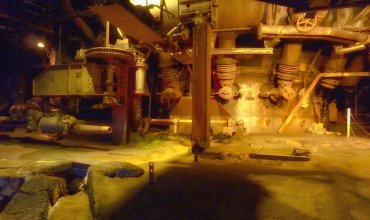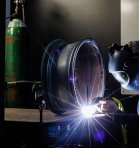In recent years, systemic copper has been gaining increasing recognition in both industry and medicine. Despite its growing popularity, many people are still not familiar with its full range of applications and mechanisms of action. Our article aims to provide a thorough introduction to systemic copper, explaining its definition, mode of action, as well as its benefits and applications in Poland. You will also learn how systemic copper affects various sectors of the economy and how it can help improve our health. We invite you to read on!
What is systemic copper?
Systemic copper is a trace element that performs many important functions in living organisms. Chemically speaking, copper has the symbol Cu and is located in group 11 of the periodic table. It is one of the transition metals, which makes it capable of forming various alloys and chemical compounds. In a biological context, copper plays a key role in many enzymatic, immunological and neurological processes.
In Poland, systemic copper is widely researched and used in various fields such as agriculture, medicine, food industry and electromobility. With their help, we can better understand how this metal affects our daily lives.
The role of copper in living organisms
Living organisms, including humans, need copper to function properly. Copper-containing enzymes are involved in cellular respiration, energy production, as well as iron metabolism and hemoglobin synthesis. Copper also supports the functioning of the nervous system through the synthesis of neurotransmitters and myelination of neurons.
Collagen fibers, which form connective tissues in the body, also contain copper. This allows skin, bones and joints to maintain their elasticity and strength. In addition, systemic copper acts as an antioxidant, neutralizing free radicals and preventing cell damage, which is extremely important for delaying the aging process and protecting against disease.
Copper resources and deposits in Poland
Poland is one of the countries in Europe with the largest copper resources. Lower Silesia in particular is a region with rich deposits of the metal, making Poland one of the key players in the European copper market. Mines in the region of Lubin and Polkowice are the leading exporters of copper on the continent, contributing to the economic development of the country.
These resources are extremely important for the economy, providing not only the raw material needed for industrial production, but also employment and economic stability for the mining regions. This deposit is mined daily to supply systemic copper to a wide variety of industries.
How does systemic copper work?
Systemic copper's performance is a result of its unique chemical and biological properties. Here are some key aspects that depict how this metal interacts with various organisms and the environment.
Chemical mechanisms
Systemic copper is known for its high electrical and thermal conductivity. Due to these properties, copper is commonly used for electrical wiring, conductive components in electronic devices, and heating and cooling systems. Copper's thermal conductivity allows it to dissipate heat efficiently, making it an excellent choice in the automotive and electronics industries.
Chemically, copper can form various compounds such as oxides, sulfides and nitrates. All of these compounds are used in a variety of applications, from dye production to agriculture to medicine. For example, copper sulfate is an effective fungicide and is often used in agriculture to protect crops from fungal diseases.
Biological mechanisms
In a biological context, systemic copper acts primarily as an enzyme cofactor. These enzymes are involved in key metabolic processes such as energy production in mitochondria, free radical detoxification and collagen synthesis. An example of a copper-containing enzyme is cytochrome c oxidase, which plays a key role in the electron transport chain, ensuring the production of ATP - the primary energy carrier in cells.
In the immune system, systemic copper supports the production of T lymphocytes, which enhances the body's immune response. A lack of copper can lead to reduced immunity and an increased risk of infection.
In addition, copper affects the body's iron metabolism. Copper-dependent enzymes are involved in converting iron to a form that can be used to produce hemoglobin. Thus, copper helps prevent anemia and supports healthy oxygen transport in the body.
Applications of systemic copper in various sectors
Systemic copper is used in many fields, making it an indispensable raw material in many industrial sectors. Thoughtful selection of applications for this metal can bring both economic and environmental benefits.
Agriculture
In agriculture, copper is used primarily as a crop protection agent. Copper sulfate is commonly used to control fungi and bacteria that can threaten crops. Thanks to its anti-fungal properties, farmers can protect their crops from disease, ensuring higher yields and better quality agricultural products.
Systemic copper is also a key ingredient in mineral fertilizers. As a micronutrient, copper is essential for healthy plant growth. It promotes chlorophyll synthesis, which translates into better utilization of sunlight and increased photosynthesis. As a result, plants can grow faster and are more resistant to environmental stresses such as drought and temperature extremes.
Medicine
In medicine, systemic copper has a wide range of applications. Because of its antibacterial and antiviral properties, copper is used in the manufacture of surgical instruments and in covering hospital surfaces to reduce the risk of infection. Studies have shown that copper surfaces can reduce bacteria by up to 99%, significantly reducing the risk of hospital-acquired infections.
Copper is also used in dietary supplementation. Copper deficiencies can lead to various health problems, such as anemia, osteoporosis and weakened immunity. Supplements containing copper help maintain adequate levels of this element in the body, which is essential for health and well-being.
Industry
In industry, systemic copper is one of the most versatile metals. Its high thermal and electrical conductivity makes it indispensable in the manufacture of electrical cables, electronic components, and automotive components. Wind turbines, solar panels and other renewable energy technologies also benefit from copper, making it a key material in the push toward a green economy.
Thanks to its resistance to corrosion, copper is also used in plumbing and heating systems, ensuring the longevity and reliability of these systems. This makes investments in copper products economical and sustainable, which attracts many investors and entrepreneurs.

Systemic copper and public health
Public health is an area where systemic copper has shown an extremely positive impact. Its biocidal properties and role in the metabolism of the human body make it an invaluable ingredient for medicine and health.
Antimicrobial properties
One of the most fascinating aspects of systemic copper is its ability to destroy microorganisms. Surfaces made of copper or containing copper admixtures can effectively eliminate bacteria, viruses and fungi in a very short time. Studies show that even metal alloys containing copper can reduce the number of microorganisms on a surface by 99% in a matter of hours.
In hospitals and other medical facilities, copper is used to coat surfaces such as doorknobs, handrails and operating tables. This significantly reduces the risk of transmitting hospital-acquired infections, which is of great importance in the context of public health. In the era of the COVID-19 pandemic, such properties are invaluable in the fight against the spread of viruses.
Supplementation and diet
Copper deficiencies in the diet can lead to serious health problems, such as a weakened immune system, anemia, neurological disorders and bone problems. Therefore, it is worth paying attention to the presence of copper in our diet. Products rich in copper include nuts, seeds, leafy vegetables, seafood and organ meats.
Copper supplementation may also be advisable for people who have problems absorbing this element or suffer from deficiencies associated with certain medical conditions. However, it is important to remember that excess copper can be harmful, so it is always advisable to consult a doctor or nutritionist before starting supplementation.
Prevention and treatment of medical conditions
Systemic copper is also being studied for its potential benefits in the treatment of various conditions. For example, there is evidence to suggest that copper may have positive effects on heart health by lowering cholesterol levels and supporting blood vessel function. Studies also show that it may have neuroprotective effects, meaning that its supplementation may be beneficial for people at risk of neurodegenerative diseases such as Alzheimer's.
In dermatology, copper-containing preparations are used to treat wounds and ulcers, speeding up the healing process and reducing the risk of infection. This shows how versatile the metal's applications can be in various fields of medicine.
Challenges in the exploitation and use of systemic copper
Despite the numerous benefits of systemic copper, there are also challenges associated with its exploitation and application. Here are some key issues to consider.
Resources and availability
Although Poland has significant copper resources, among the largest in Europe, there are challenges to exploiting these deposits. The mines are mainly located in Lower Silesia, which means that the logistics and transportation of copper wires to other regions requires careful planning. In addition, the copper mining process is costly and time-consuming, which affects the price of the raw material on the market.
Environmental effects of mining
Copper mining and processing can have a negative impact on the environment. These processes are associated with greenhouse gas emissions, water and air pollution, and degradation of mining sites. Thus, the mining industry must continuously invest in technologies that reduce its environmental impact and strive for sustainable exploitation of natural resources.
One solution is copper recycling, which allows the reuse of this raw material and minimizes negative environmental effects. Poland plays an important role in global copper recycling, which contributes to reducing the need for primary mining.
Health risks of excess copper
Although systemic copper is essential for health, excess of this element can be toxic. High concentrations of copper can lead to health problems such as liver damage, neurological disorders and gastrointestinal problems. Therefore, it is important to control copper levels in the diet and environment to avoid toxic effects.
In the industrial context, workers in mines and processing plants are exposed to copper dust, which can lead to respiratory diseases. Consequently, adherence to occupational health and safety standards is key to protecting workers' health.
The future of systemic copper in Poland and around the world
Technology and innovation are developing at a rapid pace, which makes the future of systemic copper look very promising. Both in Poland and globally, copper will play a key role in various areas of life, especially in the context of green energy and advanced technologies.
Green energy
One of the most important developments in which systemic copper will play a key role is green energy. Wind turbines, photovoltaic panels and electric vehicles require copper for efficient and sustainable energy systems. Copper's conductivity makes it an ideal material for applications in renewable energy generation and storage technology.
Advanced technologies
Developments in technologies such as the Internet of Things (IoT), smart homes and 5G technologies will also drive demand for systemic copper. Copper is indispensable for the manufacture of network cables, microprocessors and other electronic components, which are fundamental components of modern technical systems.
Recycling and sustainability
As natural resources become more limited, copper recycling is gaining importance. Poland plays an important role in the copper recycling market, enabling sustainable resource management and reducing dependence on primary mining. Investments in recycling and green technologies can contribute to sustainable development and environmental protection.
Summary
The article outlines the growing importance of systemic copper in both industry and medicine. It explains the definition of systemic copper, how it works and the benefits of its use in Poland. It highlights the important role of copper in living organisms, its functions in enzymes, the nervous system and as an antioxidant. The article also describes copper resources in Poland, especially in Lower Silesia, and its key applications in agriculture, medicine and industry. Systemic copper plays an important role in green energy, advanced technologies and recycling, contributing to sustainable development and environmental protection.

















